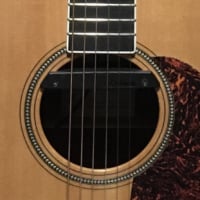Welcome! Here are the website rules, as well as some tips for using this forum.
Need to contact us? Visit https://heatinghelp.com/contact-us/.
Click here to Find a Contractor in your area.
Oil Tanks
Jim Farrell
Member Posts: 46
I am in need of a replacement oil tank...Any thoughts on the Roth Double Wall Saftey Tank...???
Any thoughts would be most help...
Thanks
Any thoughts would be most help...
Thanks
0
Comments
-
Tank
The Roth tank is a very well built unit. Galvanized shell with a poly inner lining. It will probably last a lifetime.0 -
Roth tanks
Have three of the beauties in my home and they are great. In my humble opinion, the best of the other altenative safety tanks. Well worth the investment.
To Learn More About This Professional, Click Here to Visit Their Ad in "Find A Professional"0 -
How do Roth tanks avoid the water/sludge problems
reputedly caused by top supply to burner instead of at bottom of tank? (supposedly bottom supply will allow general tank filter to remove water.)
Thanks,
David0 -
oil and sludge
The solution is to use some sort of treatment in the oil to prevent the sludge build up in the first place and to get water in "suspension"with the oil. But with those really big openings in the top, it would be very easy to bet in there and suck out the sludge if it every became a problem.
To Learn More About This Professional, Click Here to Visit Their Ad in "Find A Professional"0 -
Thanks Al. Seems like a built-in maintenance problem
whereas with a bottom supply and two good filters you might never have a sludge problem to deal with. What other tanks can you recommend that have inert inside surfaces and bottom supply?
David0 -
Even with bottom feed steel tanks
there is always , always a buildup of sludge over the years . Some are so bad we wind up leaving 30 gallons of primordial stew after a pump over . I've got less than 1/8 in my Roth tank . I'll see if I can take a pic of the inside .0 -
Pics
They aint too clear , but you can see there's no buildup on the sides . I'll take some more when it gets lower . I bought this Roth tank used , it must be 4 or 5 years old by now .0 -
Pumping fuel over
Ron said:
Even with bottom feed steel tanks there is always , always a buildup of sludge over the years . Some are so bad we wind up leaving 30 gallons of primordial stew after a pump over .
Ron, think about what you said. If there was 30 gallons left, how much did you accidentally send over to a new tank. Any is too much. A juice glass full would clog a normal residential filter.
I am against EVER pumping any fuel over from an old tank to a new tank. When I still worked in the field (retired), I would run the existing tank down to near empty, then scrap what ever is left. The new tank would always get fresh new fuel.
If the tank were a leaker, I would pump the fuel into drum(s) and feed the burner from the drums until the fuel was gone. I would then fill the new tank with fresh new fuel, and completely clean the fuel system on the heating unit, prior to start up.
In addition, I very recently attended a NORA tank seminar taught by John Levey. NORA also teaches that you should not pump fuel from an oil tank to a new tank.
JMHO
Ed Carey
0 -
Pumping fuel over
Ron said:
Even with bottom feed steel tanks there is always , always a buildup of sludge over the years . Some are so bad we wind up leaving 30 gallons of primordial stew after a pump over .
Ron, think about what you said. If there was 30 gallons left, how much did you accidentally send over to a new tank. Any is too much. A juice glass full would clog a normal residential filter.
I am against EVER pumping any fuel over from an old tank to a new tank. When I still worked in the field (retired from the field work), I would run the existing tank down to near empty, then scrap what ever is left. The new tank would always get fresh new fuel.
If the tank were a leaker, I would pump the fuel into drum(s) and feed the burner from the drums until the fuel was gone. I would then fill the new tank with fresh new fuel, and completely clean the fuel system on the heating unit, prior to start up.
In addition, I very recently attended a NORA tank seminar taught by John Levey. NORA also teaches that you should not pump fuel from an oil tank to a new tank.
JMHO
Ed Carey0
This discussion has been closed.
Categories
- All Categories
- 85.2K THE MAIN WALL
- 3.1K A-C, Heat Pumps & Refrigeration
- 55 Biomass
- 424 Carbon Monoxide Awareness
- 73 Chimneys & Flues
- 1.9K Domestic Hot Water
- 5.2K Gas Heating
- 129 Geothermal
- 160 Indoor-Air Quality
- 3.3K Oil Heating
- 61 Pipe Deterioration
- 884 Plumbing
- 5.9K Radiant Heating
- 375 Solar
- 14.7K Strictly Steam
- 3.2K Thermostats and Controls
- 58 Water Quality
- 49 Industry Classes
- 89 Job Opportunities
- 28 Recall Announcements
